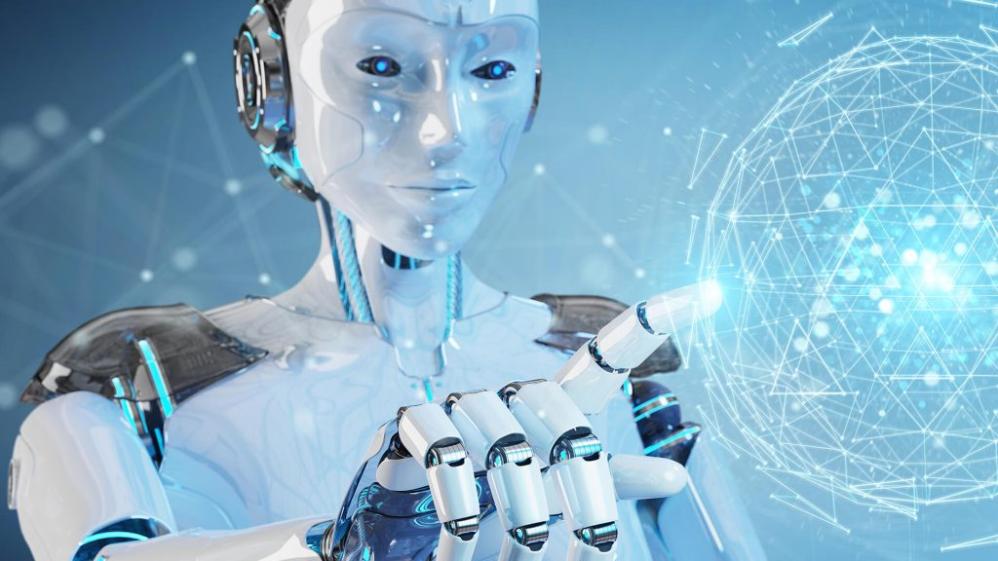How Will Artificial Intelligence Robots Change the Way We Live?
Artificial intelligence (AI) robots are machines that are capable of carrying out tasks that typically require human intelligence. These robots are becoming increasingly sophisticated and are already having a significant impact on our lives. In the coming years, AI robots are expected to change the way we live in many ways.

Impact Of AI Robots On Various Aspects Of Life
Workplace:
- Automation of tasks: AI robots are already being used to automate a wide range of tasks in the workplace, from manufacturing and assembly to customer service and data analysis. This is leading to increased productivity and efficiency, but it is also resulting in job displacement.
- Job displacement and creation: As AI robots become more capable, they are likely to displace even more jobs. However, they are also creating new jobs in fields such as AI development, robotics, and data science.
- Changes in skill requirements: The rise of AI robots is also changing the skills that are required for many jobs. Workers will need to be more adaptable and have a wider range of skills in order to succeed in the future workplace.
- Ethical considerations regarding job loss: The displacement of jobs by AI robots raises a number of ethical concerns, including how to provide support for workers who lose their jobs and how to ensure that the benefits of AI are shared equitably.
Healthcare:
- Improved diagnostics and treatment: AI robots are being used to develop new diagnostic tools and treatments for a wide range of diseases. For example, AI-powered systems can analyze medical images and data to identify diseases earlier and more accurately than human doctors.
- Personalized medicine: AI robots can also be used to create personalized treatment plans for patients. By analyzing a patient's individual genetic makeup and medical history, AI-powered systems can identify the treatments that are most likely to be effective.
- Remote patient monitoring: AI robots can also be used to monitor patients remotely. This can help to improve patient care and reduce the need for hospitalization.
- Ethical considerations regarding data privacy and algorithmic bias: The use of AI in healthcare raises a number of ethical concerns, including how to protect patient data privacy and how to ensure that AI algorithms are not biased against certain groups of people.
Transportation:
- Self-driving cars and public transportation: AI robots are being used to develop self-driving cars and public transportation systems. These systems have the potential to reduce traffic congestion and accidents, and to make transportation more accessible for the elderly and disabled.
- Reduced traffic congestion and accidents: Self-driving cars and public transportation systems can help to reduce traffic congestion and accidents by eliminating human error. This can lead to safer and more efficient transportation.
- Increased mobility for the elderly and disabled: Self-driving cars and public transportation systems can also make transportation more accessible for the elderly and disabled. This can help them to live more independently and to participate more fully in society.
- Ethical considerations regarding safety and liability: The use of AI in transportation raises a number of ethical concerns, including how to ensure the safety of self-driving cars and how to determine liability in the event of an accident.
Education:
- Personalized learning experiences: AI robots can be used to create personalized learning experiences for students. By analyzing a student's individual learning style and progress, AI-powered systems can identify the areas where the student needs the most help and can provide tailored instruction.
- Virtual and augmented reality in education: AI robots can also be used to create virtual and augmented reality learning experiences. These experiences can help students to learn in a more immersive and engaging way.
- AI-powered tutoring and assessment: AI robots can also be used to provide tutoring and assessment. AI-powered tutors can help students to understand difficult concepts and to practice their skills. AI-powered assessment systems can provide students with feedback on their work and can help teachers to identify students who are struggling.
- Ethical considerations regarding equity and access to education: The use of AI in education raises a number of ethical concerns, including how to ensure that AI-powered learning systems are fair and equitable and how to ensure that all students have access to high-quality AI-powered learning resources.
Entertainment:
- Immersive and interactive experiences: AI robots can be used to create immersive and interactive entertainment experiences. For example, AI-powered games can adapt to the player's skill level and preferences, and AI-powered virtual reality experiences can transport the user to new and exciting worlds.
- AI-generated art, music, and literature: AI robots can also be used to generate art, music, and literature. AI-powered art generators can create unique and visually appealing images, AI-powered music generators can create new and original songs, and AI-powered literature generators can create stories and poems.
- Personalized recommendations and content creation: AI robots can also be used to provide personalized recommendations for entertainment content. For example, AI-powered recommendation systems can suggest movies, TV shows, and music that the user is likely to enjoy. AI-powered content creation systems can also create personalized content, such as news articles and social media posts, that is tailored to the user's interests.
- Ethical considerations regarding authenticity and ownership: The use of AI in entertainment raises a number of ethical concerns, including how to ensure the authenticity of AI-generated art, music, and literature and how to determine ownership of AI-generated content.
Societal Implications Of AI Robots
Economic Impact:
- Increased productivity and economic growth: AI robots have the potential to increase productivity and economic growth by automating tasks, improving efficiency, and creating new products and services.
- Wealth inequality and job polarization: However, the rise of AI robots is also likely to lead to increased wealth inequality and job polarization. As AI robots become more capable, they are likely to displace jobs that are currently held by low-skilled workers. This could lead to a widening gap between the rich and the poor.
- Universal Basic Income (UBI) as a potential solution: One potential solution to the problem of wealth inequality and job polarization is to implement a Universal Basic Income (UBI). A UBI is a regular cash payment that would be given to all citizens, regardless of their employment status. This would help to ensure that everyone has a basic level of financial security, even if they are unable to find a job.
Social Impact:
- Changes in social interactions and relationships: The rise of AI robots is also likely to lead to changes in social interactions and relationships. As AI robots become more sophisticated, they are likely to become more integrated into our lives. This could lead to a blurring of the line between humans and robots, and it could also raise questions about the nature of human relationships.
- Ethical considerations regarding privacy, surveillance, and social control: The use of AI in society also raises a number of ethical concerns, including how to protect privacy, prevent surveillance, and avoid social control. AI-powered systems have the potential to collect and analyze vast amounts of data about our lives. This data could be used to track our movements, monitor our behavior, and even manipulate our thoughts and feelings.
Political Impact:
- AI-powered decision-making in governance: AI robots are also likely to play a role in governance. AI-powered systems could be used to make decisions about public policy, allocate resources, and even run for office. This could lead to more efficient and effective government, but it could also raise concerns about transparency, accountability, and democratic values.
- Ethical considerations regarding transparency, accountability, and democratic values: The use of AI in governance raises a number of ethical concerns, including how to ensure transparency and accountability in AI-powered decision-making and how to protect democratic values in an age of AI.
Artificial intelligence robots are already having a significant impact on our lives, and their impact is only going to grow in the years to come. These robots have the potential to change the way we live in many ways, both positive and negative. It is important to be aware of the potential benefits and risks of AI robots so that we can make informed decisions about how to use them. By working together, we can ensure that AI robots are used for the benefit of all humanity.
YesNo

Leave a Reply